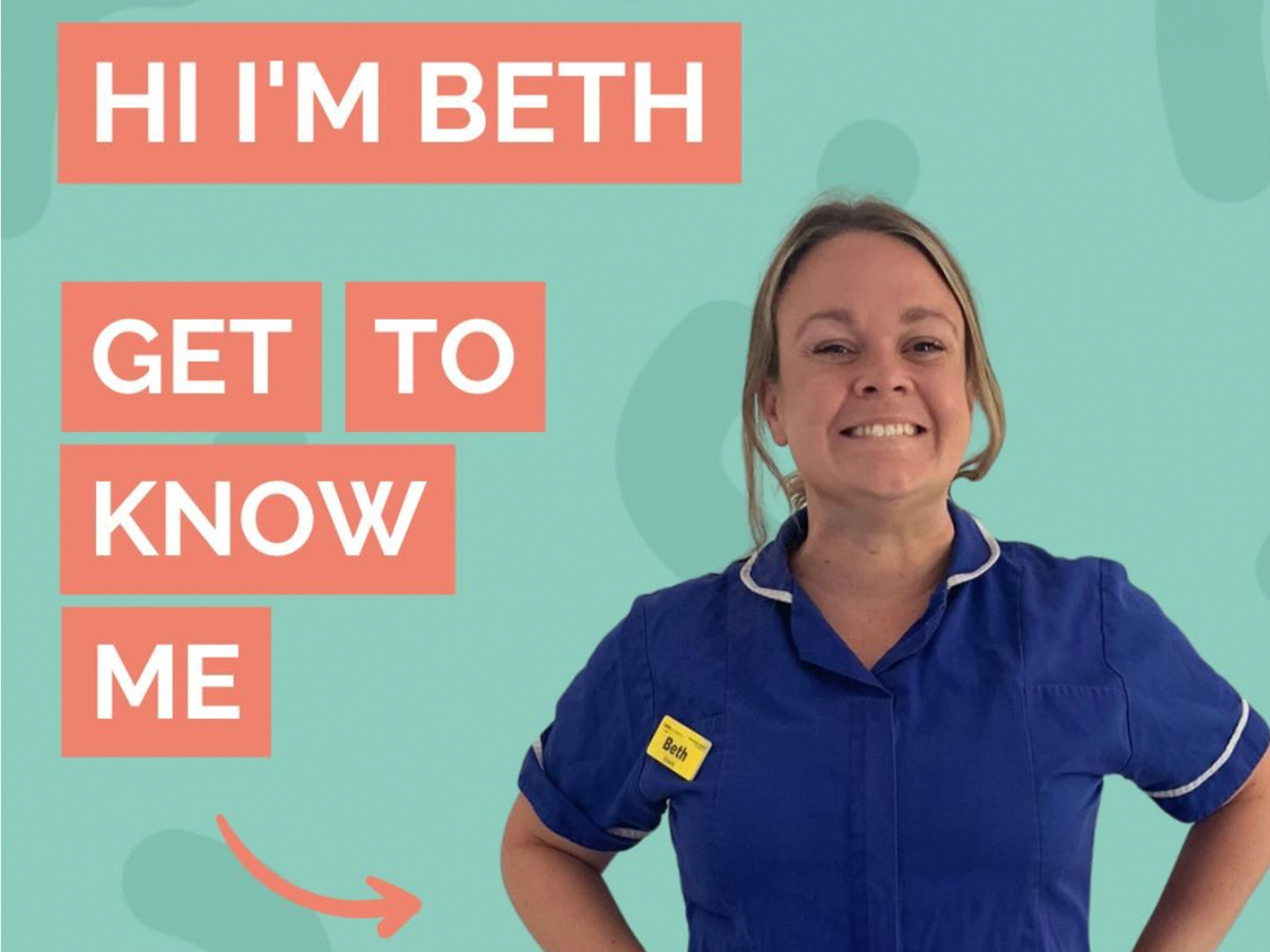Use arrow keys to navigate through the menu items. Use Tab key to navigate through the menu banners.
Is My Toddler Clingy?

Is My Toddler Clingy?
Expert advice and top tips to help you through the separation anxiety phase
If you’ve noticed tears, tantrums and total meltdowns every time you put your toddler down for their nap or even just whenever you leave the room to make a quick cup of tea, it could be a sign of separation anxiety.
This unsettling and emotional phase can start anywhere from around 6 months to 3 years, says the NHS, explaining that it’s a normal part of your child's development and they usually grow out of it.
Although that’s reassuring, having a clingy toddler can be an emotional and exhausting time for parents, says mum of 4 and midwife, Beth Kitt, founder of @thebumptobabychapter.

‘You spend those first precious months feeding, holding and cuddling them to bond. You’re their world! And once they realise how important you are, it’s a big deal when you're not there,’ says Beth.
But as lovely as it is to feel loved and wanted, separation anxiety can soon feel stifling for parents, who begin to wonder whether this phase will ever end.
If you’re in what feels like a never-ending cycle, here’s what you need to know – as well as things you can try.
What causes separation anxiety?
While your instinct as a parent is to worry about your baby’s change in behaviour, experts agree that separation anxiety is a healthy sign and a normal stage of development.
According to The National Childbirth Trust (NCT), ‘It’s a sign your child’s awareness of the world is evolving and that they know they are dependent on you or their other main carers. So, separation makes them feel unsafe. The good news is that this awareness is a step forward.’
Parent talk
“My daughter suddenly started getting distraught whenever I dropped her off at nursery. She was about a year old. I went to work blaming myself, thinking I was upsetting her by going to work. But then I realised she was crying at weekends even when I went to make a cuppa. It was a mum friend who said it was likely to be separation anxiety and strangely, it made me feel so much better knowing it wasn’t my fault!”
Paula Habib, mum to Lily, 15 months
What are the signs of separation anxiety?
The main indicator of separation anxiety is having a clingy baby or toddler who always wants to be with you.
Other common clues are:
-
Crying when they’re left with someone else (key worker, grandparent, even their other parent)
-
Refusal to play on their own and only settling when you stay and play with them
-
Getting upset when you put them down for a nap and leave their bedroom
How to deal with a clingy toddler?
Although they will grow out of it, there are some effective tactics you can try doing to manage separation anxiety while it lasts.
Start small: NHS guidance recommends practising short bursts of separation from your child and then building up. It suggests ‘leaving them in someone else's care for a few minutes while you nip to the local shop.’ Leave them with someone they know well so they still feel comfortable and safe in your absence. Gradually work towards longer separations, and then leaving them in less familiar settings.’
Give them a comforter: Midwife Beth Kitt says making sure they have a favourite toy that smells like you can make a world of difference for some clingy toddlers. “It can help soothe them a bit quicker. Whether that’s after a teary drop-off or to help them settle at naptime, it’s worth trying," she says.
Say goodbye with smiles: Whenever you do say goodbye to your toddler, either when nipping out and leaving them with a family member or at a nursery drop-off, make it a smiley positive experience. ‘This can help them have positive associations with the experience that will eventually become OK for them, rather than traumatic or upsetting,’ says Beth.
Acknowledge how they’re feeling: It can be helpful to talk to them about how they’re feeling and give them something to look forward to when you pick them up. “Saying things like, ‘I’m really looking forward to reading a story with you after pick-up' or ‘I can’t wait to sing songs together on the way home,’ will help,” says Beth.
Parent talk
“My wife and I were stressed out from our son’s separation anxiety, so we spoke to our toddler’s keyworker at nursery. She was really helpful and reassuring, and helped us to stick to the tactics we introduced and not to give up too soon.”
George Lincoln, dad of Freddie, 14 months
Could it be something else?
Constant crying or a change in your toddler’s behaviour can also be a sign that they’re unwell. Always check for a fever and call a doctor if your instinct says it’s more than ‘just’ separation anxiety.
Help & Customer service
- Help Centre
- How to shop
- Product recalls
Payment Methodslist with 8 items
- Asda Group of Companies
- Modern Slavery Statement
- Electrical Waste Recycling
- Terms & Conditions
- Customer Review Policy
- Privacy Centre
- Cookie Settings
- Accessibility
© ASDA 2025